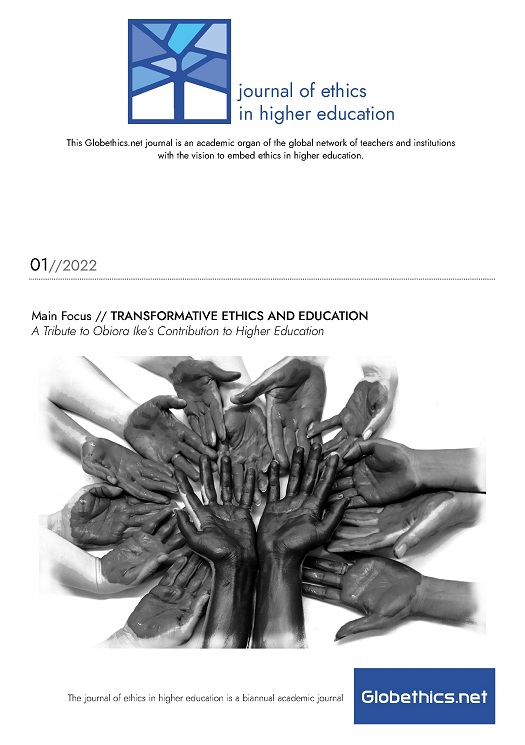Students’ Exposure to Common Good Ethics and Democracy Outcomes
DOI:
https://doi.org/10.26034/fr.jehe.2022.3383Abstract
Following Professor Obiora Ike’s view and in particular Obiora 2012, 2013, 2017 (see reference below), the more students are exposed to ethics practice, the greater their propensity and capability to seek for ethical living. This important assumption is worth close statistical scrutiny as the author shows. Through empirical researches and the stratified sampling approach, 435 university students are randomly selected to illustrate this claim. The method used is the “Perceived Role of Ethics and Democracy Outcome Scale” (PREDOS) and a survey questionnaire used to measure exposure to common good ethics among the respondents. Descriptive analysis – tables and analysis and covariance (ANCOVA), are aimed at facilitating the analysis of the data collected in the study. In tandem with the conclusions drawn from extant literature and works of Professor Obiora Ike, the findings, as the author see, show that exposure to common good ethics has a significant positive effect on students’ ethics practice and democracy outcomes.
Downloads
Published
How to Cite
Issue
Section
License
Journal articles of Globethics Publications are published under the open Creative Commons License Attribution-NonCommercial-ShareAlike 4.0 International (CC BY-NC-SA 4.0), which guarantees the rights of licensor and allows free use and re-use to the licensees (the readers) who can: 1) Share — copy and redistribute the material in any medium or format 2) Adapt — remix, transform, and build upon the material provided appropriate credit is given and similar license is used in case of such adaptations. Content should not be used for commercial purposes. Each article (the version of record) can be deposited by the author on their academic institutional repository or personal author webpage.







